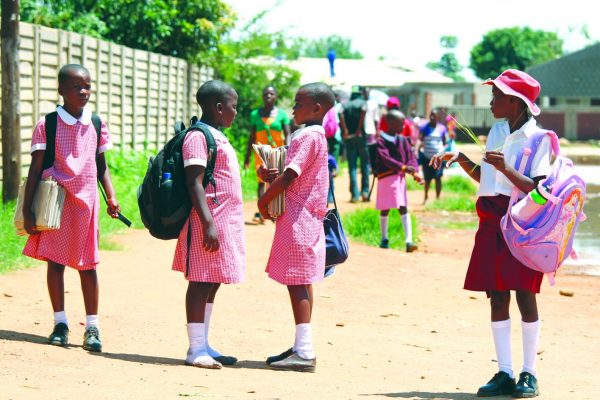
On November 20 1989, the United Nations General Assembly adopted the Convention on the Rights of the Child, which, among other things, calls on every country to put in place legislation and policies that reduce social and financial barriers to staying in school.
By Moses Mugugunyeki
Today, the Convention on the Rights of the Child is the most widely ratified human rights treaty in history. Zimbabwe, like the other 194 parties that were part of the historic gathering, has committed to protect every child’s right to education.
After attaining independence in 1980, Zimbabwe was glorified as having made remarkable improvement in education, becoming one of the countries with the highest literacy rate in Africa. As of 2010, the literacy rate in Zimbabwe was 92%.
However, over the years little has been done to maintain this status; instead, things are falling apart.
During the early years of independence, education was regarded as a strong tool for social and economic revolution which saw the country investing heavily in the sector.
The country enjoyed a vibrant partnership with the donor community that included the Swedish International Development Cooperation (Sida), Canadian International Development Agency (Cida), United Nations development agencies such as Unicef and Unesco, among others, which poured resources into the education sector during the first decade of independence.
This was in tandem with national educational policy goals that were set in 1980, which included making education a basic human right for every child and adult.
- Chamisa under fire over US$120K donation
- Mavhunga puts DeMbare into Chibuku quarterfinals
- Pension funds bet on Cabora Bassa oilfields
- Councils defy govt fire tender directive
Keep Reading
Primary education was made free and compulsory, while secondary education was provided to all citizens who needed and could afford it. The curriculum was also reviewed to correct the imbalances in education brought by the colonial regime.
However, the deterioration in education was noticed in the late 1990s due to the effects of the Bretton Woods institutions-prescribed Economic Structural Adjustment Programme (Esap) which championed privatisation of public entities, thereby eroding welfarism.
There was a massive decline in education funding following the pulling out of key donor partners and government’s reluctance to resource the education sector. Government weaned off most schools, thereby compelling primary schools to introduce tuition fees and levies for survival.
The tuition fees and levies became a barrier for most parents who had lost their jobs due to Esap. While government insisted on making primary education free and compulsory, many school-going children found themselves out of school as their families could not afford the so-called scool levies.
Last Tuesday schools opened for the first term, with most institutions shutting doors on children who had not paid school fees. According to Unesco, 264 million children and young people the world over still do not have access to education and projections suggest that it will be another 70 years before the right to education is universally realised.
Although Zimbabwe recognises the right to education through the Convention on the Rights of the Child and domestic legislation as well as policies, the fulfilment of the right to education is far from being a reality, says child activist Nyari Mashayamombe.
Mashayamombe, who is leading a campaign of civic organisations dubbed Every Child In School (Ecis), is calling on the government to make sure the right to education is enforced.
“Since its launch on December 14 2017, Ecis has been calling on the Primary and Secondary Education minister to immediately release a circular that instructs all school authorities in public primary schools to allow children whose parents cannot afford school fees to be accepted, including those enrolling for the first time,” she said.
“As we commend the government, the campaign reinvigorates the call on parliamentarians to ensure that government has clear systems and policies in place to protect vulnerable children and communities that are struggling owing to the current prevailing economic conditions.
“Government must go out of their way to ensure that out-of-school children are encouraged together with their families, to re-enrol into schools through putting in place conditions that make public schools accessible.”
Sociologist Yotamu Chirwa said people living in poverty were the most affected.
“The less-priviledged members of the society are the ones that suffer at the end of the day,” he said.
“Infringement of the right to education results from lack of political will, poor execution of policies and inadequate budget allocations for education by government,” he said.
While we hail the new government’s move to scrap maternity fees and ordering free treatment of children under the age of five, as well as all people above 65 years, we strongly believe there is also need for the government to revert to the policy of making primary education free and compulsory.










